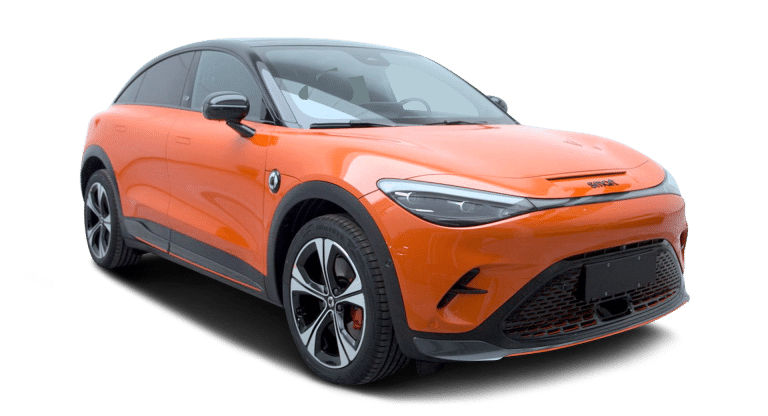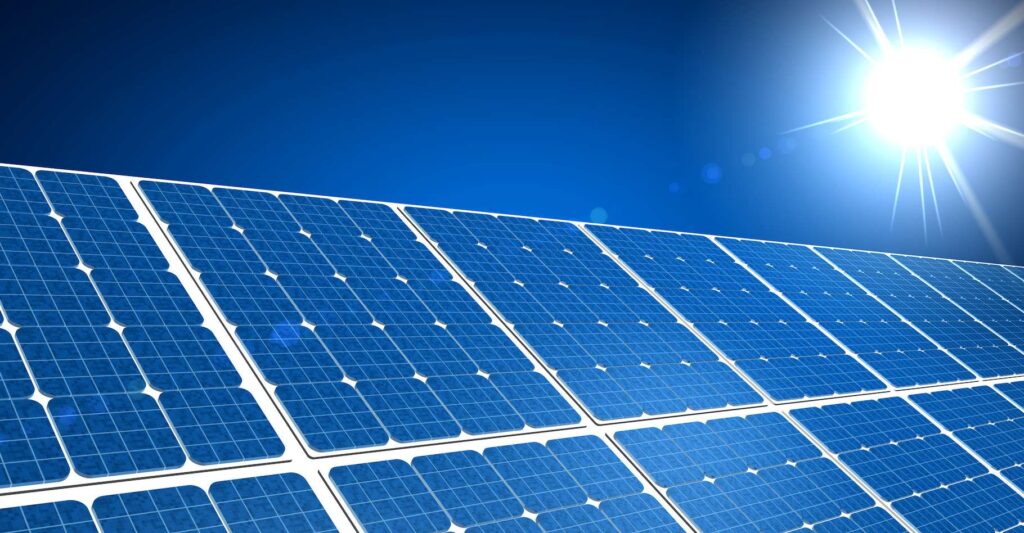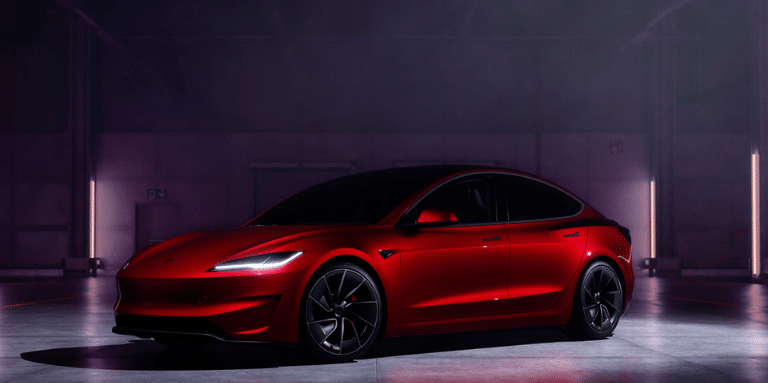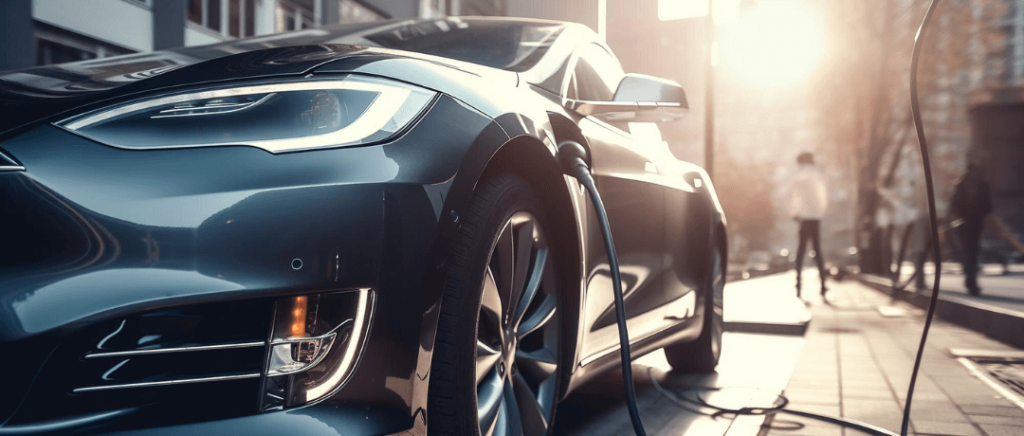Why install solar panels?
L'he installation of solar panels has boomed in recent years. The need for environmentally-friendly energy is becoming ever greater.
Today, many people are installing or learning about the possibility of having solar panels at home. Here are a few reasons why you might want to take the plunge.
Reason No. 1: Long-term investment
Lt's no secret that installing solar panels is expensive. Nevertheless, solar energy should be seen first and foremost as a long-term investment. A good solar installation will not only pay for itself, but also generate income. Photovoltaic systems are considered to break even after 15 years.
Reason no. 2: Customized energy production
Photovoltaics are perfectly adaptable to most homes and regions of France. The way it works means you can produce energy in a controlled way. Thanks to your installation, you can cover more or less extensive needs. If you want to produce more energy, you're free to increase the size of your installation, and therefore its power and annual output.
Reason no. 3: Environmentally-friendly energy
Unlike fossil fuels, the sun's rays are an inexhaustible source of energy. Installing solar panels lets you benefit from sustainable energy that won't deplete our natural resources.
Reason No. 4: You benefit from a wide range of grants
Subsidies can be very attractive, as they can help you get a quicker return on your investment. Various organizations, such as theAgence de l'Environnement et de la Maîtrise de l'Énergie or local authorities, can help you obtain attractive financial assistance.
Reason no. 5: reliable materials
Investing in solar panels built in France or within the European Union will guarantee you reliable, long-lasting equipment.
Totally fixed, the solar panel suffers very little wear and tear. What's more, a photovoltaic panel is made exclusively from hard-wearing materials such as aluminum, glass or silicon.
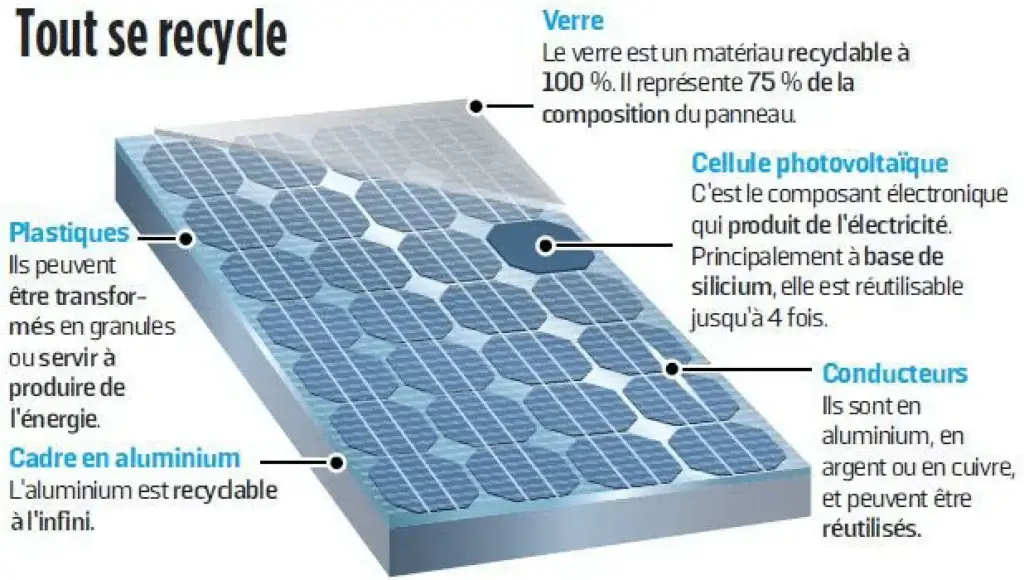
Reason no. 6: Increase the value of your property
Modernizing and powering your home with the best technology and the finest solar systems will increase the value of your property.
The Solar Roof from Tesla for example, in addition to differentiating you on the real estate market if you wish to resell, adds an extra touch to the architecture of your home, while transforming sunlight into electricity.
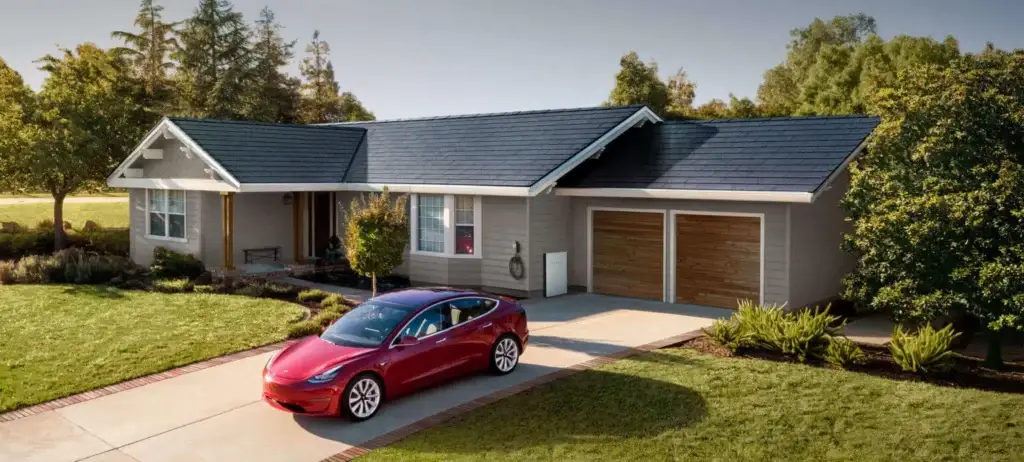
Reason no. 7: Limit your bills
By directly using the solar energy you produce, you save money on your energy bills. When you consider the cost of electric heating, this can add up to considerable sums over the years.
Reason no. 8: Low maintenance
Once installed, your solar panels will pose very few problems. After all, a photovoltaic system is far from complex to operate:
- Solar panels require no fuel fuel or consumables.
- The panels are immovable, and won't be damaged by use.
- Simple maintenance visits are all that's needed to keep the system running smoothly.
Reason no. 9: You can resell your energy
One of the major advantages of photovoltaics is clearly the energy resale. If you decide not to consume your solar energy, or if you have surplus energy, you can sell the energy produced but not consumed. In other words, photovoltaics brings you a regular income, depending on the amount of energy you produce. A 20-year contract allows you to sell back all the energy you produce. After that, you won't be able to sell any more energy, but you'll still be able to consume the energy you produce.
What are the formalities for installing solar panels?
Solar energy can be a great opportunity for anyone. Solar panels can be installed anywhere in France, not just in the hottest cities.
However, not every home is ideal for a solar panel installation.
First and foremost, you need to carry out an estimate estimate of the scope and potential of your energy project before moving on to the next steps:
Step 1: Sizing your project
- Analyze your building: you need to analyze the features of your home that will influence your energy performance and consequently on your savings and the profitability of your photovoltaic system.
- Evaluate your consumption: Find out about your annual energy consumption, and in particular how much you use during the day.
Step 2: Choosing your equipment and installer
- Equipment: to make your solar system profitable and ensure its longevity, the choice of equipment is essential. You'll need to choose the type of photovoltaic panels, the inverter which will link your panels to the grid and your home, and finally the self-consumption kit optimized for you.
- Service providers: there are so many players on the market, it's hard to find your way around. When it comes to installing solar panels, there are three types of service provider independent contractors, integrated network contractors and intermediaries. So it's not always easy to find a company to help you with your project. In Sun We Trust was set up to help you make the switch to solar energy. In Sun We Trust takes care of everything from detailed studies and personalized advice to administrative procedures, after-sales service and warranty. So you can switch to solar power with peace of mind. Once you've found your ideal installer, the next step is to take the administrative steps to connect your solar system to the public grid managed by Enedis or your ELD.
Step 3: Administrative procedures
- Town hall: once you' ve decided on the size, type and location of your solar panels, you need to contact your local town hall to check the feasibility of your project. To apply for a preliminary declaration of work, you need to fill in the following form this form and submit it to your local town hall. In addition, the file must include :
- A ground plan, i.e. a schematic plan of the plot with the dimensions of each element.
- A plan of the location of your solar panels: facade, roof or ground plan.
- One visual showing the appearance of the house after the solar panels have been installed, and an additional one showing the house in its environment once the work has been completed.
- The deadline for a response is 1 month. If the Town Hall does not get back to you, you can start work on the site and display the receipt with the Town Hall's stamp showing the date the declaration was submitted.
- Grid operator: Next, you need to submit your connection request to the grid operator, usually Enedis. They'll send you a connection proposal, including a quote based on the type of connection you've requested.
- Purchase obligation contract: if you wish to sell your surplus production to an approved electricity supplier, you must sign a purchase obligation contract with the supplier.
Step 4: Installing the solar panels
- Agreements between stakeholders: the longest in self-consumption is to wait for feedback from all the organizations involved.
- Moving in: once you've got your papers in hand, you can start work on your home.
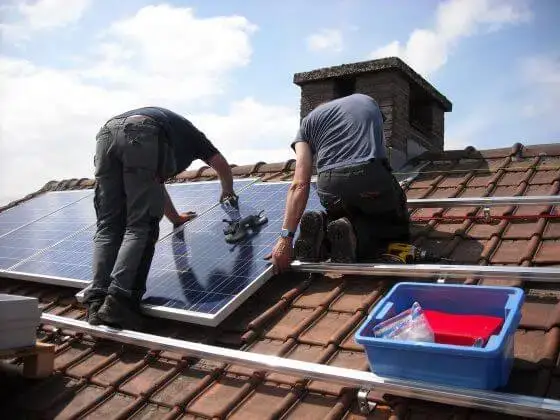
- Prof your renewablenergie renouvelable : Once all the formalities have been completed and the solar panels installed at your home, all that's left to do is enjoy your new 100% renewable energy.
Solar panels and charging stations
When you choose to drive an electric vehicleyou often want to recharge your car as cleanly as possible, using renewable energies in particular. In this case, the sun is the best way to make the most of your electric and ecological initiative.
To recharge your electric car and reach the goal of zero emissions, the most ecological way is to use the energy produced by the sun. And there are various ways of recharging your electric vehicle at home:
Solar carport
The solar carport is a carport for sheltering your car from the elements. One of its main advantages is its lightness and ease of installation. The carport can be fitted with photovoltaic panels. This gives you a surface area of 15 to 20 m2 of panels without touching the roof of your house.
- Price: The cost of a solar carport is lower than installing panels on the roof. A solar carport can be installed in a day. A recharging station is also installed, so you can connect an electric vehicle or a rechargeable hybrid vehicle. A "simple" carport for a car with around 17 m2 of panels will cost you around €10,000 for the structure, panels, inverters and wiring, plus a pre-wired electrical box.
- Energy generated: with a panel surface area of 15 to 20 m2 depending on the model, a solar carport has an installed power of around 3 kW. Depending on your geographical location, you'll be able to generate between 2,400 and 4,200 kWh over the course of the year. This represents 60 to more than 105 clean recharges ofa Renault Zoé for example, or 15 to 30,000 km thanks to the sun and its renewable energy. If you have a Tesla Model S (100 kWh), you benefit from 24 to 42 recharges. What's more, with photovoltaic panels on the roof, you can sell the electricity you produce, or consume it yourself.
- Savings: According to a study carried out by specialists in the installation of photovoltaic panels, a 4-person household equipped with solar panels would save an average of €1,350 on an annual electricity bill of €1,935.
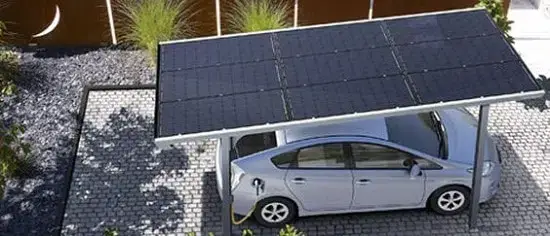
Install solar panels on the roof of your home
When you choose to install solar panels at home, the energy produced is non-polluting. What's more, as part of our ecological approach, it's possible to go even further and recharge your electric car using solar energy. No greenhouse gas emissions and the assurance of having a vehicle ready to go when you want it.
In self-consumption, the energy produced by your panels is distributed to appliances connected to your home network. If you want to recharge your electric vehicle using solar energy, you can plug your car into the mains when the panels are producing their maximum output.
Solar panels produce their peak energy at midday. Recharging is most effective in the evening or at night, ideal after a long day's work.
Solar panels generate direct current. The charging of an electric car at home is done with alternating current at a voltage of 240V controlled by a charging station (mode 2), which is not a charger as you might think. The charger is actually inside the car. The role of the terminal is to control the flow of alternating current. It's the car's charger that converts the alternating current into direct current. In the case of charging directly from solar panels, an inverter is required to transform the direct current from the panels into alternating current. The inverter synchronizes the electricity with the grid, and generates the electricity we consume.
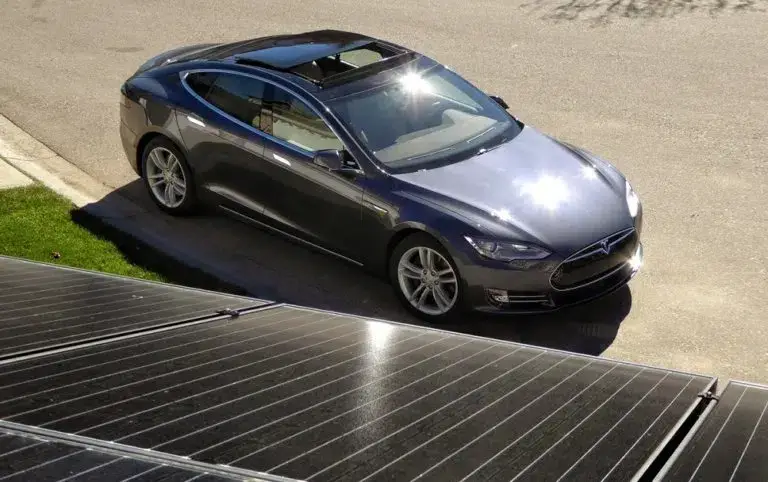
What assistance are you entitled to?
Are you planning to install solar panels to supply your home with electricity? Your installation may be covered in part by photovoltaic panel grants, and in some cases generate income.
There are different options for managing the electricity generated, involving a specific contract and type of connection:
- Total self-consumption: you consume your entire production. This saves you money on your electricity bill from the grid.
- Self-consumption with sale of surplus: you consume your production and sell the surplus to an authorized organization. In this case, you benefit from a reduction in your electricity consumption bill from the grid, as well as income from the sale of electricity. To encourage the use of renewable energies, the French government has set up a number of schemes to help private individuals finance their energy-saving projects.
- Photovoltaic self-consumption bonus: surplus sales installations are eligible for an investment bonus. This premium is degressive and variable according to the power of the installation. It is spread over the first 5 years of operation.
- Selling surplus electricity: you can also sell surplus electricity to your chosen supplier. Feed-in tariffs are set by the decree of May 9, 2017. Every year, on the anniversary date of the commissioning of your photovoltaic system, you send your invoice to the producer who buys the electricity from you.
- Selling surplus electricity: you can also sell surplus electricity to your chosen supplier. Feed-in tariffs are set by the decree of May 9, 2017. Every year, on the anniversary date of the commissioning of your photovoltaic system, you send your invoice to the producer who buys the electricity from you.
- Reduced VAT rate: grid-connected photovoltaic systems with a capacity of 3 kWp or less that are fully self-consuming, or that sell the surplus or all of the electricity produced, can benefit from a reduced VAT rate à 10 %.
.
Local authority aid
You may be eligible for local grants in addition to government subsidies. To find out, contact your local council, departmental council or regional council to find out what financial support you may be eligible for.
- Paris : 750 € grant The subsidy is conditional on a household tax income per consumption unit of less than €28,362 or a high level of home performance.
- Alsace : 750 €/kWp subsidy A grant of up to €30,000 is available for photovoltaic solar panel installations of up to 100 kWp.
- Corsica : single-family homes can benefit from a subsidy of 2/Wp up to a maximum of €6,000, provided that the installer is qualified QualiPV.
Are you tempted by the idea of solar energy, but not sure how to pay for it? It's true that installing solar panels comes at a price. But thanks to consumer enthusiasm and technological advances, the price of photovoltaic panels is steadily falling, unlike the price of electricity, which continues to rise.
By opting for a renewable energy source, you're playing your part in the energy transition and saving money over time. But for solar panels to be profitable, the cost of the photovoltaic panels must allow you to make a financial profit. The more the benefits or savings generated by the solar system enable you to pay back your investment quickly, the better off you'll be. And the planet too!
